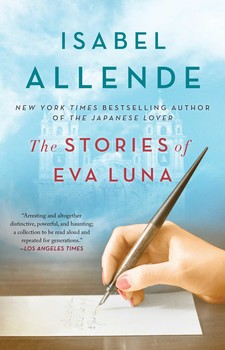How Writing Short Stories Can Help You Become a Better Novelist

Writing short stories is completely different from writing novels (think 10k marathon vs. a 100 meter sprint).
Short stories are often ignored and overlooked by writers who are hoping to write the next great American novel. But, what if I told you that a short story is the key to improve your writing, receive critical acclaim and even get published?
You probably wouldn’t believe me, right? How could a short story accomplish all of that? You’re about to find out.
What I’ll share with you below is definitely controversial advice. Some writers don’t believe that composing short stories can actually improve their writing; however, I’m firmly planted in the camp of “How can short stories not improve your writing”?
Short stories can help you sort through your thoughts and create a stronger and tighter narrative.
A short story can also act as your muse. Speaking from experience, I’ve started out writing short stories only to see them morph into novellas and then full blown novels.
If you’re stuck and not sure how to get started writing, it may be that you’re simply overwhelmed with the prospect of writing 100,000+ words. Limit your scope, limit your characters, limit everything and create a something now.
Let’s talk about how to use short stories to become a more effective writer, and then how to turn those short stories into something more.
Here’s a list of best practices for writing short stories. Subscribe to receive this extra resource.
Hone Your Storytelling Skills

Short stories are often isolated to one single incident in your protagonist’s life. It doesn’t usually chronicle a series of events over an extended period of time. There’s just not enough room in a short story to do that.
In your novel, you have more room to flesh out specific details. However, if you’re not careful, this can quickly turn into unusable filler that’s cut out during the editing process.
In the short story format, every single word counts. Each word must do double duty: engage the reader and move the story forward.
While writing short stories, you learn to:
+Be concise. You have limited space to tell a compelling story. Carry this thinking into your novel space, too.
+Introduce the plot early. In short stories, by necessity, you must get to the point quickly. Learn how to do that in your novel as well by practicing with short stories.
Crafting a short story teaches you the same skills that you will also use in writing a novel.
Become a Better Editor
Short stories have one universal requirement: to be short. If they go past 10,000 words, you’re working on a novella. In fact, I consider any short story that extends beyond 7,500 words as a cautionary tale in wordiness and lack of editing.
The beauty of a short story is how it forces you to create a moving and engaging narrative within in a tight space.
Simply by virtue of writing short stories, you’ll train yourself to avoid extraneous content that doesn’t push the story forward.
Short stories are also easier to edit than novels, as you are dealing with a few pages compared to a few hundred pages in a novel. Plus, working with such a small story helps you see which elements are simply dragging down the story.
Get Familiar with the Characters
So, you’re writing a novel but you just aren’t sure you understand the characters well enough to craft an extended epic?
Discover your characters with a short story.
Short stories provide you with an immediate introduction of your characters. You can sort through age, gender and other physical descriptions right away.
You can also start to discover how the character responds in certain conditions.
Let your short story serve as a character snapshot.
You may find that it’s easier to write short stories when crafting your character bible instead of just writing out a fact sheet. Learn more on writing a character bible here:
Character Development: How to Create a Consistent Voice
Get Your Feet Wet and Create Something

If you have a few hours to spare, you can write a short story.
Short stories don’t require precise planning or extensive outlining. You can just wing it and see where your writing takes you.
For these reasons, short stories are a lot less intimidating.
Get Those Ideas Into Print
Most writers that I know struggle with all of the great ideas that visit them. A lifetime is just not enough time to tell all of the stories you want so desperately to tell.
In my particularly creative periods, I’ve come up with tons of ideas for stories. I have notebooks filled with such ideas, and nothing ever comes of it.
Do you have the same problem?
If you’re anything like me, you feel guilt and grief because you’re not able to turn these ideas into the stories that they deserve to be.
One way to alleviate your guilt is to utilize the format of a story short.
You can challenge yourself to write a short story every week for a month, or even a year. In a year’s time, you’ll have written 52 short stories. More than enough to do something exciting with, which we’ll discuss below.
Here’s What to Do With Your Short Story:
Turn Your Short Story Into a Novel
A lot of great, critically-acclaimed novels started out as short stories. Some of the most popular include Flowers for Algernon by Daniel Keyes, Raft by Stephen Baxter, and Ocean at the End of the Lane By Neil Gaiman.
It’s possible to come to the end of 10,000 words and realize that there’s much more left to say, more ideas you can explore, and more that the protagonist needs to learn.
If you are greeted with a rush of inspiration at the end of your short story, don’t ignore it— embrace it and continue writing toward your novel.
Turn a Series of Short Stories into a Novel
Isabel Allende curated an entire collection of short stories into a complete novel. Piggybacking off of her previous novel, Eva Luna, Allende used the title character in the role of narrator, weaving together 23 short stories under the united themes of feminism, social commentary and magical realism.

The Stories of Eva Luna by Isabel Allende
You, dear writer, can do something similar with your collection of short stories. If you find that it’s easier for you to write short stories, don’t torture yourself into becoming a novelist.
Instead, string together many short stories and turn them into an anthology.
Submit Your Short Story to a Literary Magazine
Short stories are in big demand at many literary outlets. The New Yorker, The Atlantic, the Antioch Review— all of these respected and widely read publications accept short story submissions, and they’re not the only ones. There are well over 50 top literary magazines that actively accept short stories from writers.
Some of them even pay.
While you probably won’t be able to make a living wage off of submitting short stories, any payment is a welcomed perk. However, the real honor is to actually get accepted and be published among your peers.
Also, consider online journals and themed anthologies as potential publishers for your short story.
Final Thoughts
Writing a short story doesn't just to help you become a better novelist, it helps you become a better writer. Use these tips to improve your writing skills while letting your creativity out. Good luck!
Here’s a list of best practices for writing short stories. Subscribe to receive this extra resource.




